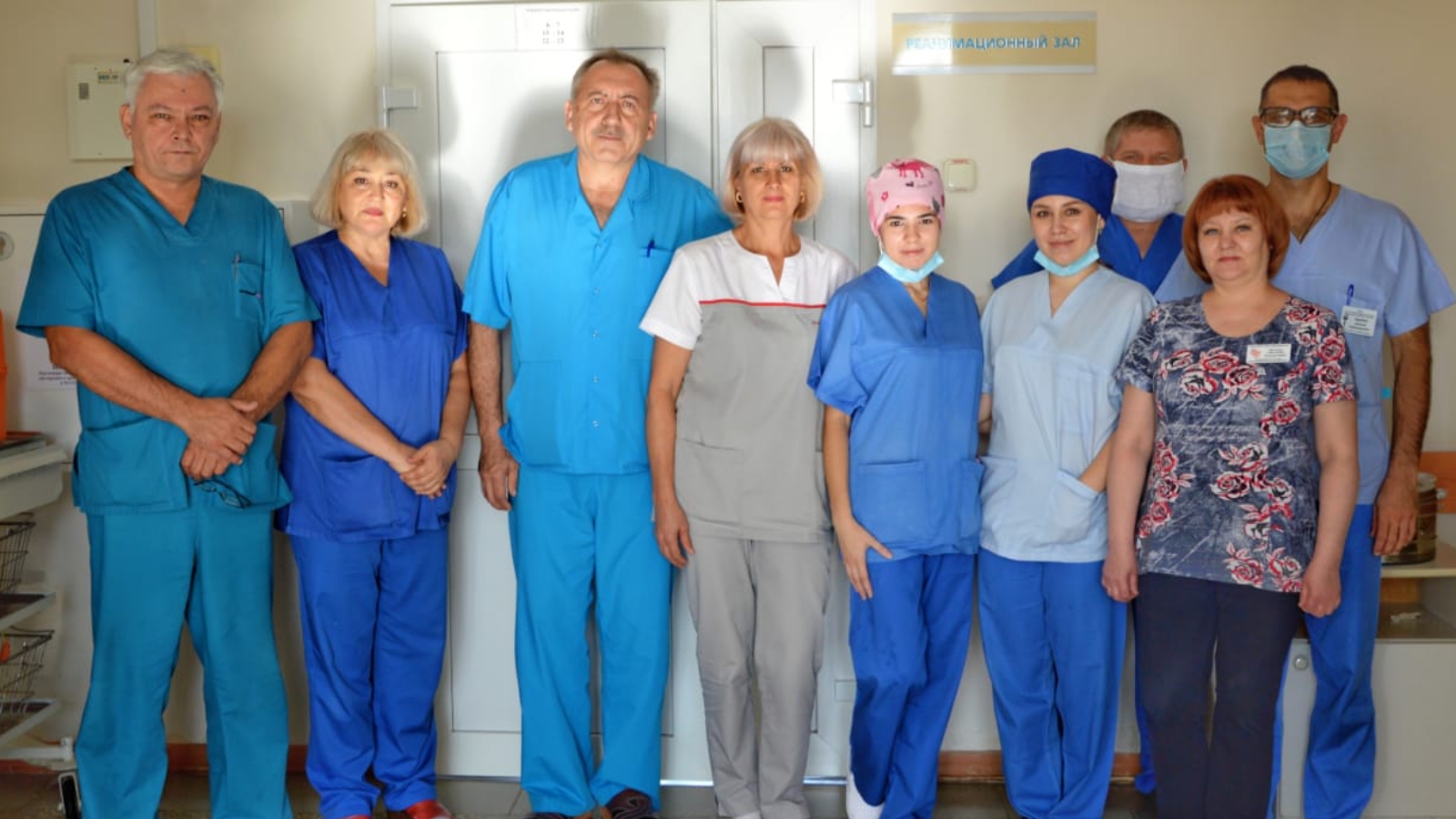Anesthesiologist-intensivists are celebrating a professional holiday today

There is not a surgeon who can manage without them during the surgical operation, they work with the most difficult patients and always are on a knife's edge. They almost always remain fighters of the invisible front. Anesthesiologist-intensivists are celebrating a professional holiday today. In total, 26 anesthesiologist-intensivists work in Nizhnekamsk hospitals, and on the eve of the professional holiday, we talked with the anesthesiologist - intensivist of the Nizhnekamsk Central District Multifunctional Hospital Vinera Shangaraeva – about love for the profession, conversations with relatives about the imminent death of their loved one, why patients prefer complete unconsciousness, about difficult cases and, of course, about a miracle.
"My mother is a physician. She graduated from the medical school and already enrolled in medical university, but took pity on her mother, who raised six children alone. Then my mother got a paramedic diploma, but really wanted me to become a physician. She didn't insist, but as a child I saw my mother magically cope with any medical problem in our family, relatives or neighbors. As a paramedic, she was able to do everything – in addition to the usual injections and IVs for nurses, she worked with dental and ENT patients, immobilized fractures, set dislocations, made bandages, and performed some medical manipulations. I liked it, and I grew up with the idea that a physician should be able to do everything. After grade 11, I tried to imagine myself as an accountant or lawyer, but I found it boring. And I already knew how to give injections, put IVS, make compresses, and it all seemed so natural. I set off to enroll to the medical university of Ufa, but I didn't have enough points because of physics. I returned to Nizhnekamsk, applied to medical school, and three years passed like a day. I set off to medical university again, and this time I decided to study in Kazan but didn't succeed. But I got a job as a laboratory assistant at the Department of Clinical Immunology and Allergology, concurrently attended courses for applicants at the university, and on the third attempt I was still able to enter the pediatric faculty. For a whole year I was in euphoria and felt myself the happiest person on earth! I still didn't know who I wanted to be, but I definitely felt that I should be a physician who knows the way out of any situation. From the second year to the end of the study in the Kazan State Medical University, I worked as a night nurse in the Neurosurgical Department of the Republican Clinical Hospital. While I was studying, I was engaged in research in neurology, neurosurgery, and cardiology, but I never found my "own" department and began to think about cosmetology as a profession that, unlike most medical industries, is able to help to earn money on living.
That year, to our sad surprise, almost all internships, except for pediatrics, became a paid. A medical university graduate must have completed postgraduate training in a specific specialty in order to be admitted to work. And suddenly the news is that the internship in anesthesiology and resuscitation will be free. Of course, I applied there...But when I started studying, it seemed to me as if I had not studied at a medical University for 6 years, and this is even despite the high average score on the diploma – such a particular specialty. But I realized – this is it, this is what I intuitively wanted since childhood. It was all I wanted – complexity, urgency, a wide variety of pathologies, working with your hands and no need to stand for hours at the operating table."
"It was surprising for me to find that if a patient has a choice - to be absent during the operation or to use this type of anesthesia when consciousness remains, then most of them prefer and even beg for complete unconsciousness. Patients are not so afraid of the fact that during the surgical operation they do not control themselves, are at the mercy of another person, do not know what is happening to them and how it will all end. For them, it is more frightening to see what is happening in the operating room, and to hear our conversations and how the medical personnel work with tools.
"Complex and dangerous cases occur not only with emergency patients, but also with planned patients. Emergency patients whose reserves are depleted are always difficult for the anesthesiologist - you need to manage to perform anesthesia so as not to worsen the patient's condition or not to lose him on the operating table at all. And anesthesia is not an intervention for the frail patients. In order to count on a successful outcome, you need to have a strong body".